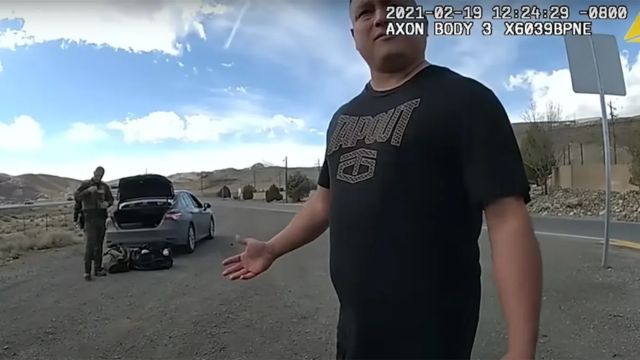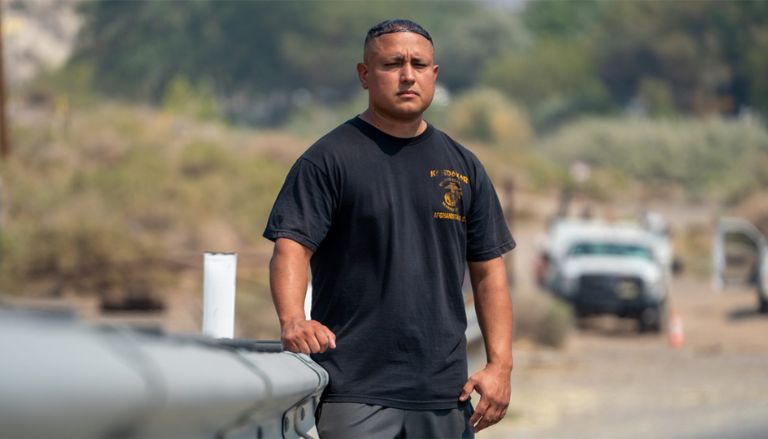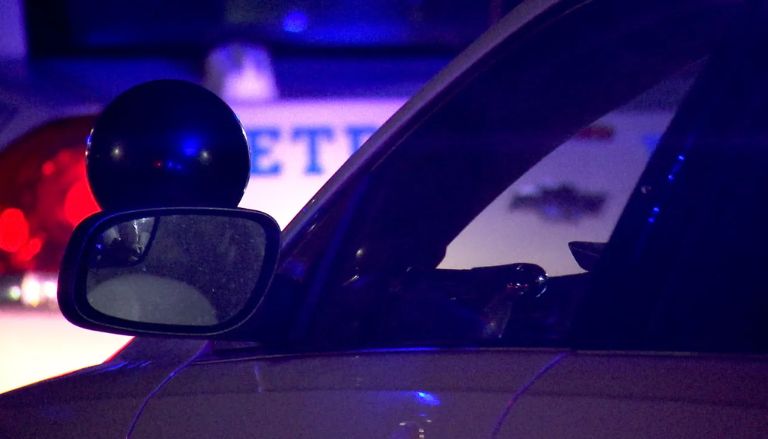As an example, the Nevada Highway Patrol took a Marine Corps veteran’s life savings and used a federal loophole to do it. A judge decided that state police can’t do the same thing.
Lawyer Stephen Lara told Fox News Digital, “The fight is not over.” There are a lot of other people out there who are still going through this bad civil asset seizure process. We don’t even hear about these stories in other places.”
In February 2021, Lara was on his way from Texas to California to see his daughters. This is where his story started. Body camera video shows that an officer with the Nevada Highway Patrol pulled him over with about an hour to go in his trip. The officer said Lara was following a semi-truck too closely and going too slow.
Video shows that the officer asked Lara to get out of his car and then asked him about his shirt, his daughters, and finally whether he had any “large amounts of United States currency in the vehicle.”
Lara said he had cash with him on his trip.
“I don’t trust banks, so I keep my own money,” he stated. He let the police search his car, and they found $87,000 in cash, bank records, and paystubs in a plastic bag.
The police used a dog to sniff the money and told Lara that the dog “alerted” to the money, which meant it might have something to do with drugs. They took his money and gave it to the Drug Enforcement Administration (DEA). This is called civil asset seizure, and it lets the government take and keep property that they think is linked to crime, even if no one is arrested.
Lara was never accused of a crime.
The DEA supports forfeiture as a way to “attack the financial structure of drug trafficking and money laundering groups worldwide, from the lowly courier carrying cash or drugs to the top levels of drug cartels.”
Nevada is one of many states that limits civil forfeiture. For property to be given back to the government, there must be clear and convincing proof that it is linked to a crime.
But a scheme called “equitable sharing” lets local and state police work with federal police on forfeitures without having to follow the rules. When the property is taken by the federal government, they can give up to 80% of the money made back to the state agency.
“That being incentivized so that that department or that agency can gain assets or gain more revenue, to me, that’s dirty,” she said. “That’s absolutely disgusting.”
Lara finally got his money back with the help of the Institute for Justice, a civil rights law firm that doesn’t get paid for its work. But he is still suing for damages and to stop police from taking other people’s money.
Early this month, Nevada Second Judicial District Judge Connie J. Steinheimer said that the state legislature “has not explicitly permitted NHP to use the federal process for forfeiture, which has less strict standards.”
“NHP cannot undermine this bedrock policy and effectively circumvent Nevada’s civil asset forfeiture statutes by electing to participate in the federal equitable sharing program,” Steinheimer said.
A representative for NHP did not answer a call for comment. This group, the Institute for Justice, thinks that the state will fight the decision.
Lara said he thinks there won’t be real change “until qualified immunity goes away.” People often can’t sue the police or other government bodies for violating people’s rights because of this rule.

“People who pay taxes are paying for these lawsuits,” Lara said. “No one is responsible.” And these police officers and companies won’t be forced to stop until they are directly punished.
Lara made it clear that the fact that he is a soldier doesn’t make him more important than other people whose money has been taken away, but it has given him a unique view on the problem.
His words, “This is personal to me,” “It does something to you when you have a country that pays you a retirement check for the service you put in, and it’s that same country that’s working in collusion with these local state police departments to try to take the very money that they pay you for retirement.”







Leave a Comment